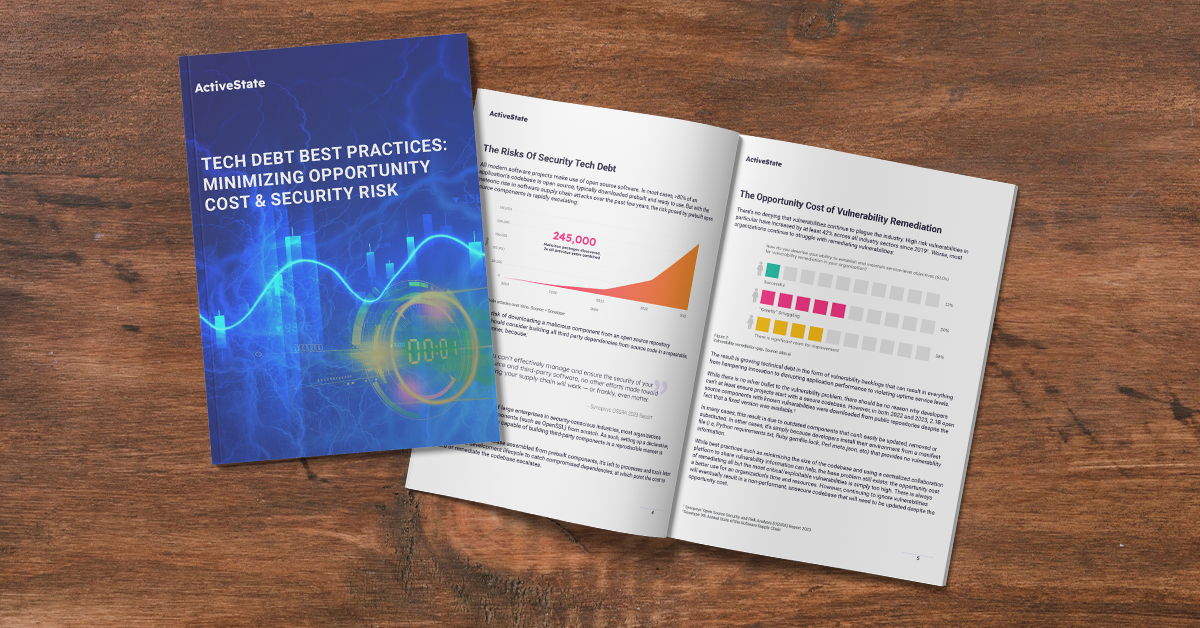We love finding out more about our users and this week we’re sharing a Q&A with Gregg Thomason (aka [neurobashing](https://twitter.com/neurobashing)). Gregg is a long-time Komodo user (since version 4!) and big contributor to the community; you may have used his first public Komodo package, a [status bar widget](https://github.com/neurobashing/Komodo-Git-Branch) to show the current git branch. In his interview, he gave us some insight into what he likes best about being a programmer and using Komodo. Gregg’s role is a mix of system administration, DevOps and web development, but at his company they don’t really use formal job titles, so he picked “Science Viking.” 🙂 
**How did you get into programming?**
I got a [Commodore 64 ](https://en.wikipedia.org/wiki/Commodore_64)as a kid and typed BASIC games into it from magazines, the canonical gateway drug to software engineering.
We joke that I am the longest-running recruitment effort here: my best friend has worked here for 18 years, and he constantly tried to recruit me, for something like *15 years*. I was doing my own thing at a few other places, but I eventually gave in, which was the right move. [ASTi](http://www.asti-usa.com/) is a great place to work.
My company’s main products are audio simulation systems for military training: flight sims, forward observer (artillery)/radio stuff, and so on. We have been branching out into commercial applications like air-traffic control training as well. All our stuff is controlled/managed from web apps and uses Python (and now, Go) heavily in the middleware layer.
**Any public examples of what you’ve done that we can link to or point out?**
I do not remember how I first heard about Komodo – I *think* it was when I was installing ActivePerl onto a Windows machine.
I don’t have a lot of really interesting public code, but [https://github.com/neurobashing/BetamaxGenerator](https://github.com/neurobashing/BetamaxGenerator) and [https://github.com/kevinjqiu/flask-passwordless](https://github.com/kevinjqiu/flask-passwordless) are two things I’ve done/contributed to recently. I’ve published a few [Python-Markdown](https://pythonhosted.org/Markdown/) plugins ([Better Tables](https://github.com/astiusa/BetterTablesExtension) and [Better Images](https://github.com/astiusa/BetterImageExtension)), added a few pieces to [Homebrew](https://github.com/Homebrew/homebrew), wrote a very simple [CouchDB management library](https://github.com/astiusa/CouchTools), and maintain the most recent fork of [node-augeas](https://github.com/neurobashing/node-augeas).
I just released my first public Komodo package, a status bar widget to show the current git branch – [https://github.com/neurobashing/Komodo-Git-Branch](https://github.com/neurobashing/Komodo-Git-Branch). But I’ve written a million and one macros over the years, which I should get around to publishing at some point.
**Do you use Komodo’s “polyglot” (i.e. multi-language) functionality?**
I do sysadmin/IT/”devops” and web development, so I do 99% of my work in shell, Python, or the web stack (JavaScript, HTML/CSS). We’re starting to use Go more, and a few other random pieces of our codebase show up from time to time (xml, erlang, what have you), so the polyglot support in Komodo IDE is pretty important to me.
**What do you think are Komodo’s biggest strengths?**
The polyglot nature of Komodo is definitely one of Komodo’s biggest strengths–out of the box it works with just about every possible modern language and framework. I also like that you can customize your workspace and use Javascript and Python to extend it (the UI, editor, workspace, etc). VIM mode is also a great feature for the work I do.
**Can you recommend books/tutorials to junior programmers that are just getting started?**
The best way to learn programming is to program: sign up for CodeEval, one of the Project Euler-alikes, or even Khan Academy. Program all the time. And use a programmable editor like Komodo! I find fiddling with macros a really great way to “warm up” in the morning, or when I need a break from a tough problem.
**Are there any programmers that you admire?**
My programming heroes are [jwz](https://twitter.com/jwz), [Steve Yegge](https://en.wikipedia.org/wiki/Steve_Yegge), and [Raymond Hettinger](https://twitter.com/raymondh). And [Defman ](https://twitter.com/_defman)from the Komodo forums deserves a shout-out–he’s crazy prolific.
**Any other advice or feedback you’d like to share?**
Coffee mugs, man. Coffee mugs. The people have spoken! (see replies to [https://twitter.com/komodoide/status/638759689795207168](https://twitter.com/komodoide/status/638759689795207168) for context)
—
Thanks to Gregg for contributing to the Komodo community and taking the time to share his story. Oh, and those coffee mugs Gregg mentions…We’re giving a mug away + $50 savings with every purchase of Komodo using coupon BTW50 in September.
If you want to tell your developer story and how you use Komodo, drop us a note at [marcom@activestate.com](mailto:marcom@activestate.com?subject=Share My Story) or [follow us on twitter](https://twitter.com/komodoide) and send us a DM.



